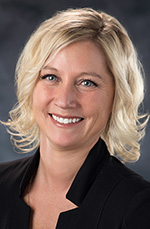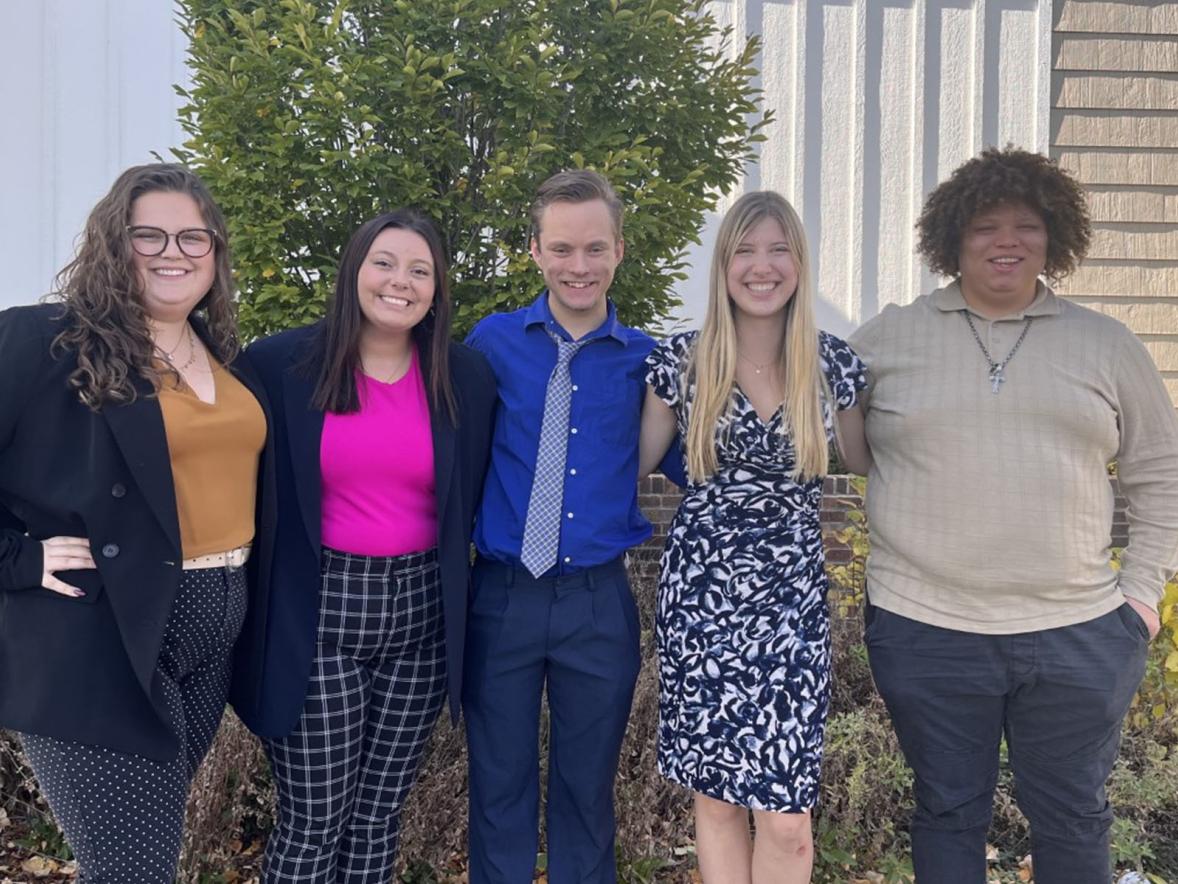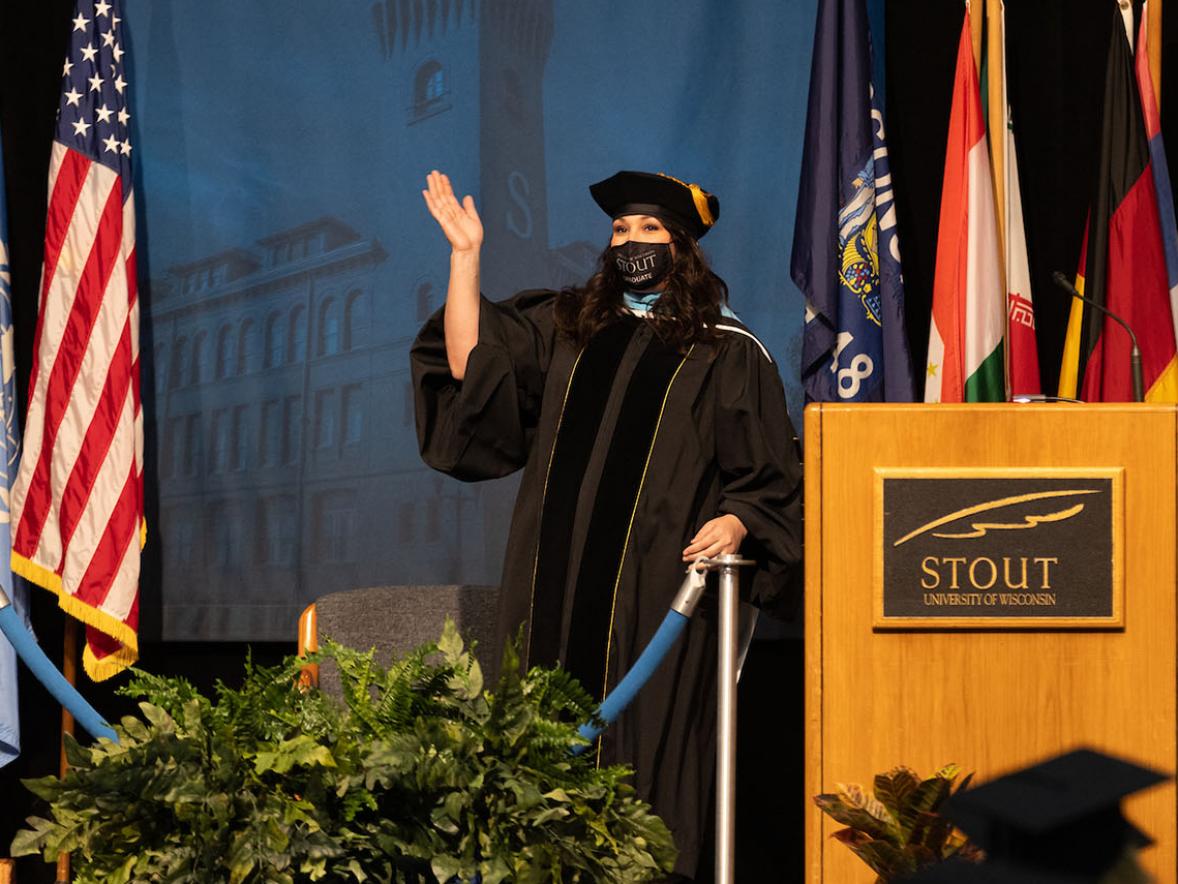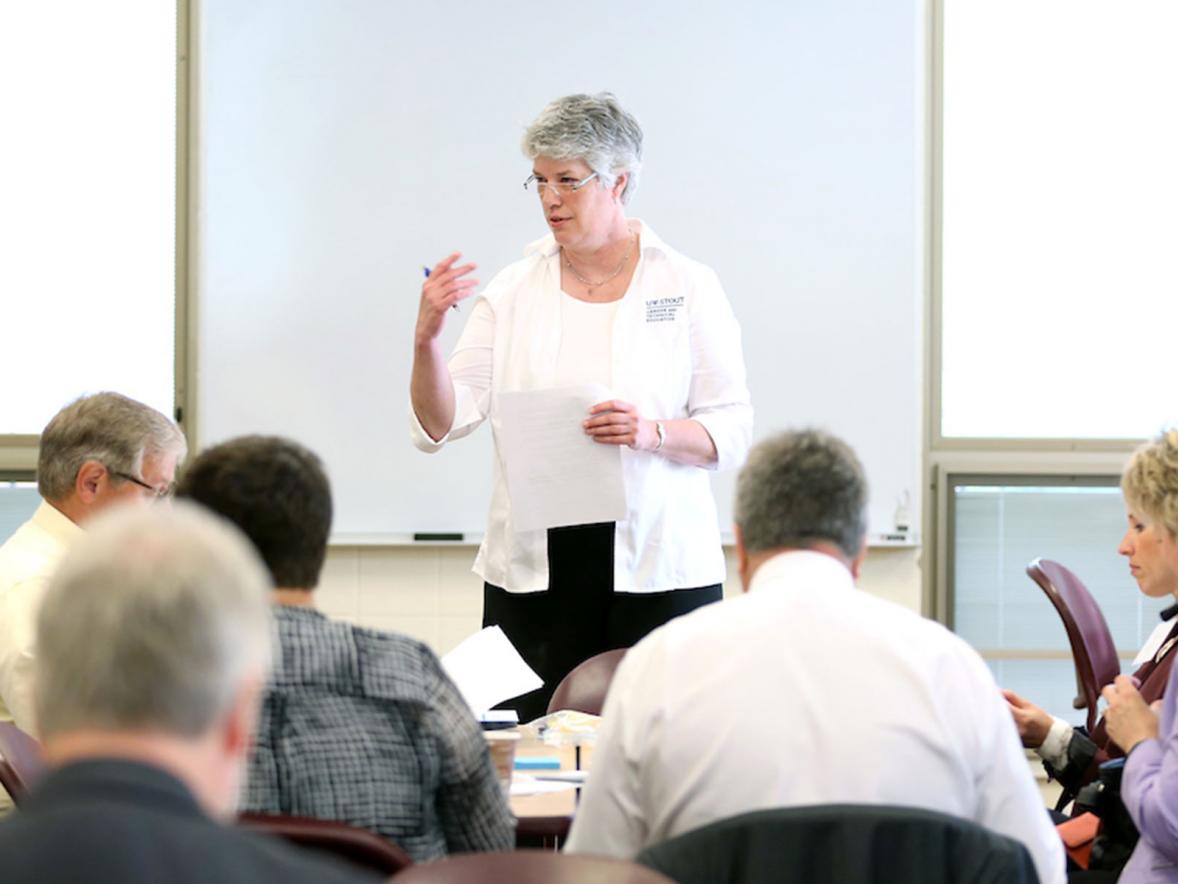An alumna who is president at the College of Lake County in Grayslake, Ill. is the 2020 Career and Technical Education Executive in Residence at University of Wisconsin-Stout.
 Lori Suddick will speak from 4 to 5:30 p.m. on Tuesday, Feb. 18, on the “Cultural Relevance Through the Lens of Demographic Shifts” in room 110 of Jarvis Hall Science Wing. Admission is free.
Lori Suddick will speak from 4 to 5:30 p.m. on Tuesday, Feb. 18, on the “Cultural Relevance Through the Lens of Demographic Shifts” in room 110 of Jarvis Hall Science Wing. Admission is free.
As part of the CTE Executive in Residence program, Suddick also will meet with students and faculty throughout Tuesday, Feb. 18, and Wednesday, Feb. 19. From 10:30 to 11:30 a.m. on Wednesday, Feb. 19, she will hold a virtual roundtable for distance education students in room 205 of Sorensen Hall.
Suddick earned her Ed. D. in Career and Technical Education in 2017 from UW-Stout. She believes that pursuing a doctoral degree gave her the opportunity to add new insight and expertise to her professional focus on ensuring equity in access and success of students in higher education through a lens of cultural relevance relative to the demographic shifts in society.
At the College of Lake Country, Suddick is focused on building a collaborative high-performing student-focused culture where every student succeeds, and every employee thrives. As a first-generation college student, she is passionate about the transformative power of education for individuals, families and communities. She is committed to significantly increasing student access and success while eliminating racial and socioeconomic disparities in educational attainment. She is committed to building innovative and collaborative community partnerships for workforce solutions and economic development.
Suddick has served as a national coach for the American Association of Community Colleges Guided Pathways project which focuses on building a systemic design framework to achieve equitable student success outcomes.
Kathryn Feuerhelm, interim director of the Emerging Center for Career and Technical Education Excellence, said Suddick brings a unique combination of lived experience and education supporting career and technical education. “Her commitment to building community partnerships and increasing student access are relevant across all disciplines, making this presentation applicable to educators and community partners alike, Feuerhelm said. “Equity and access are important conversations to have, specifically through the lens of economic development and workforce education.”
Along with honoring graduates who contribute to the advancement of the field, the CTE Executive in Residence program helps expand the vision of contributing to the business and industry supply chain of graduates who possess the skills, knowledge and aptitudes to meet the current, near future and futures of work that have yet to be envisioned.
UW-Stout’s bachelor’s, master’s and doctoral CTE academic programs are outgrowths of one of the university’s first majors, industrial education, dating to the early 1900s. The CTE master’s program has been offered for 75 years, since the Graduate School opened in 1935. UW-Stout began offering a doctorate in CTE in 2013, the university’s first doctoral program.
###
Photos
Lori Suddick
Kathryn Feuerhelm







